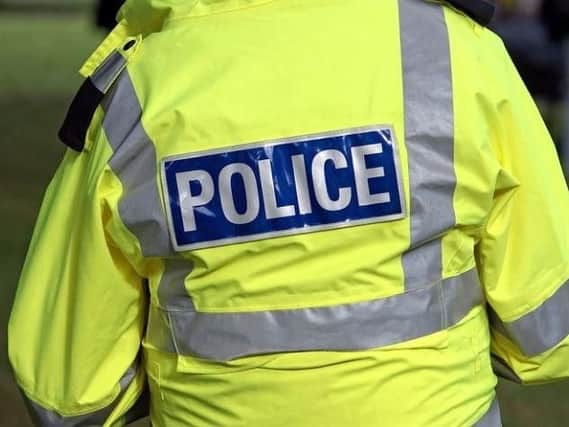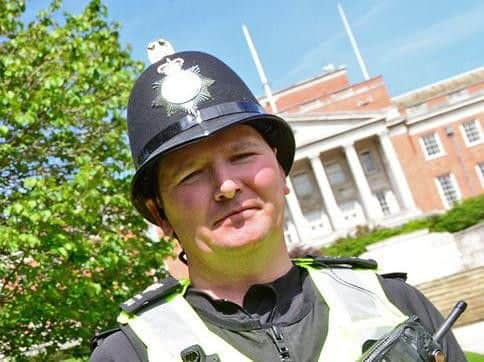New Inspector answers 5 of YOUR questions about policing in Chesterfield


Q. Anti-social behaviour is a big problem in Chesterfield town centre. What's being done to tackle it?
A.In the October 5 edition of the Derbyshire Times, we responded to a very similar comment from a member of the public who had spoken to a reporter on Beetwell Street. I refer to the work we are doing in the town centre. Arrests and drug-related warrants and searches have been taking place and continue to do so. Nineteen people who regularly impact on the town centre are now serving prison sentences and there are more awaiting trial or released under investigation while enquiries continue. In my statement, I also refer to the work we do alongside partnership organisations to signpost people to the right help and support as our operation is not just about enforcement.
Advertisement
Hide AdAdvertisement
Hide AdQ. What's being done to combat drug problems in Chesterfield? It's particularly bad in the Grangewood area.


A. In June, the Derbyshire Times published a special report with the headline 'How drug gangs are targeting young and vulnerable people in Chesterfield'. Its focus is on what we are doing to target drugs activity in the Chesterfield area, specifically with reference to Grangewood and the drugs network known as county lines. I'd like to echo what DI John Roddis says in this article - that this is a high priority for us not only as a local team but as a force. We continue to gather intelligence then carry out warrants and searches and have made recent arrests for drug offences. The more information members of the public provide us with the more action we can take to combat the problem, so please report any suspicious activity to us.
Q. Police seem to have become faceless. Why don't you see officers regularly patrolling the streets anymore?
A. Due to cutbacks and reductions in officer numbers, our Safer Neighbourhood policing teams are covering larger areas than they ever have. It is often impractical for them to attend incidents on foot due to the length of time it would take them to get there and would essentially need a vehicle to effectively complete their role. I do appreciate people like the reassurance of seeing the bobby on the beat, but that has to be balanced with the resources we have available. More officers on foot means less officers in response cars capable of attending emergency calls for service and that balance has to be right. For me it's about getting the dedicated neighbourhood officers we do have seen as much as possible and I have recently taken delivery of a number of bicycles to be used by our Safer Neighbourhood teams to make them more visible. These are already in use and you may have seen the teams out on their bikes already. Other forces have disbanded their neighbourhood teams already as it's a luxury they cannot afford but thankfully in Derbyshire we haven't had to do that and for me they are the clear link to the community.
Advertisement
Hide AdAdvertisement
Hide AdQ. When someone rings the police about an emergency, you either take forever to attend or don't turn up at all. What's being done to improve response times?


A. Derbyshire police receive in excess of 1,000 calls every day with more than 500 of those requiring some kind of police officer involvement. It just isn't possible to send an officer immediately to every call so when someone contacts the police a risk assessment is carried out by the call taker. Based on the information provided, the call is given a grading and the level of that grading will determine the response. The main assessment is based around the question - what is the immediate risk or threat to a person or property? If that immediate risk or threat exists, the call gets the highest grading, which is when officers will travel with blue lights and sirens. If that immediate risk or threat isn't present then we have to travel in the same way as all motorists do. The force has put a number of measures in place to help us keep officers available on the streets to attend emergency calls, including inviting people to an appointment at the police station to speak to an officer at a time convenient to them, or recording their crime at first contact and allocating that crime to an officer to investigate as part of their daily tasks. We have also recently installed incident management software which allows officer's positions to be accurately tracked so that the nearest available officer is readily identifiable to attend an emergency.
Q. What impacts are Government cuts having on policing in Chesterfield?
A.Government cuts have impacted on every force and every borough or district across the country without exception and that includes Chesterfield. We are facing newer and ever increasing challenges around dealing with things such as terrorism, child sexual exploitation, modern day slavery, mental health, human trafficking and cyber-crime to name a few. In a recent press release, the Police and Crime Commissioner for Derbyshire highlighted that Derbyshire Constabulary had reduced in officer numbers by almost 400 and Chesterfield has seen its share in loss of officers. In real terms this means we are expected to do much more with fewer resources. We have to come up with innovative ideas around how best to use the resources we have available and it also means that we have to prioritise our work more than ever.